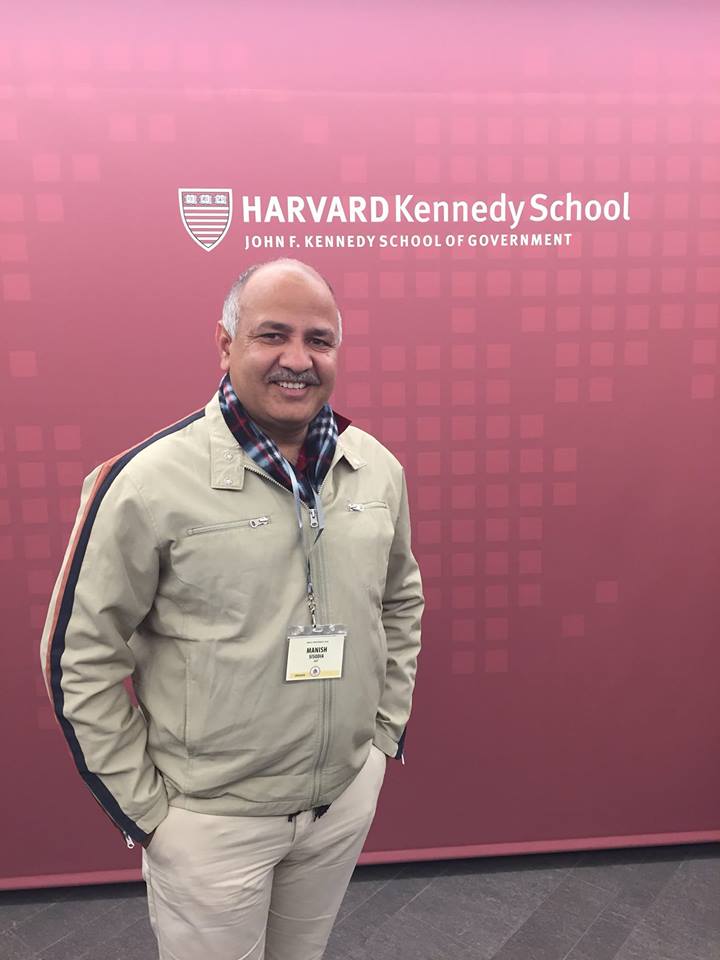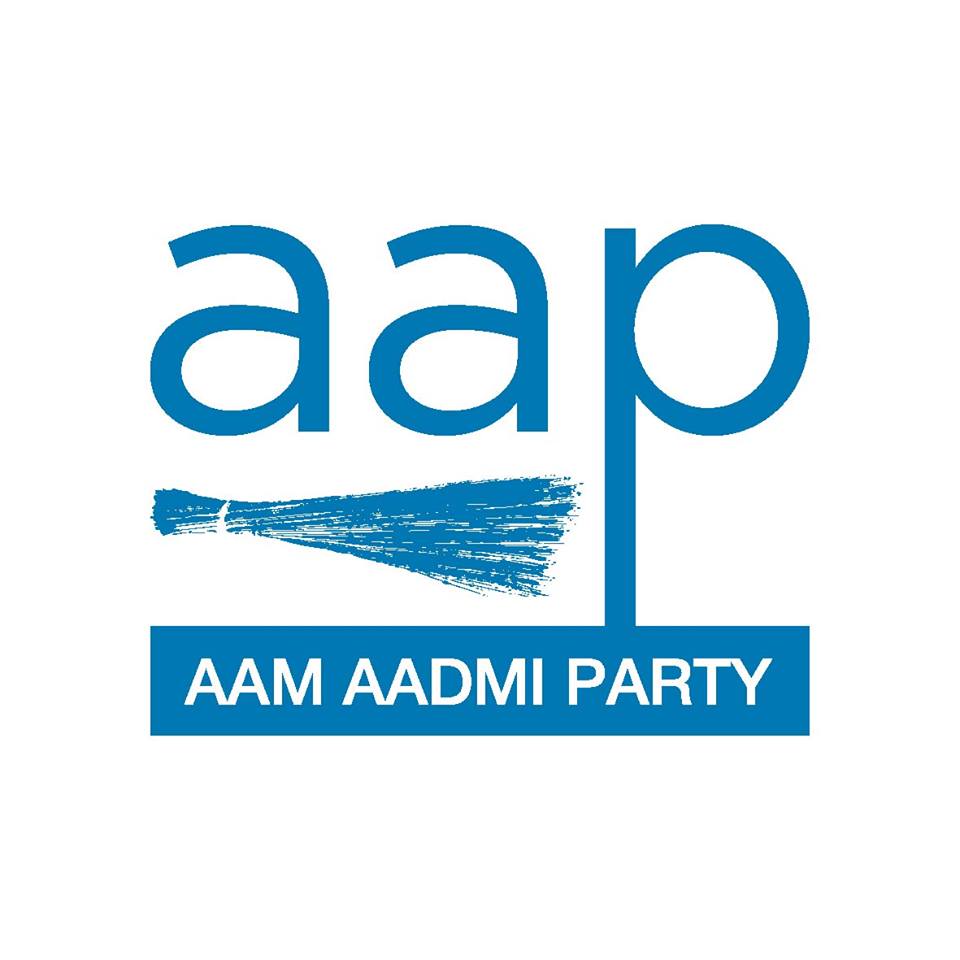
Deputy Chief Minister Manish Sisodia delivered the Keynote Address at the prestigious Harvard University during the annual India Conference on Saturday (Eastern Time). Mr Sisodia was invited by the University to speak about Delhi government’s pathbreaking innovation in education and healthcare. He presented the Delhi model of governance to an audience of students and academics of Harvard University apart from eminent Indian businessmen and journalists at the Conference.
Deputy Chief Minister Manish Sisodia presented his governance vision, that can serve as a model for the entire country. He said, “India has created several public institutions like the IITs, IIMs and AIIMS that produce professionals of high caliber. But all these institutes currently cater to 1-5% of the population. For the rest of the 95%, the system has completely collapsed. The situation is similar for healthcare as well. The country’s development depends on the quality of its human resource, its people; and the quality of the human resource depends on their access to high-quality education and healthcare. Delhi’s model of governance addresses this fundamental need.”
Delhi’s Education Reform Model
Mr Sisodia showed the audience old pictures of dilapidated government schools, followed by pictures of Delhi government’s newly constructed and renovated schools. He said
In the first year we concentrated on improving the infrastructure of schools. Delhi government schools now have smart classrooms, clean and modern washrooms, air-conditioned Assembly halls and some even have swimming pools and athletic tracks! Many schools were given such facelifts. We have also built 8000 new classrooms and 10000 more are in various stages of completion.
Delhi government schools have been made more accountable to parents, said Mr Sisodia. Parent bodies called School Management Committees (SMCs) have been rejuvenated and empowered in the last three years. They have altered the parent-school dynamic in ways that nothing else had before them. By empowering these committees. The government also began to conduct Mega Parent Teachers Meetings across 1023 Delhi government schools in July 2016.
We have also been spending resources on training our teachers and Principals at Universities around the world, including Cambridge, Singapore, and Harvard. The focus of teaching is now learning-oriented in Delhi government schools. The Teaching at the Right level model recommended by MIT’s J-PAL has been implemented in Classes 6 to 8 to bridge children’s learning deficits.
Delhi’s Healthcare Reform Model
In a country like India where people cannot afford high insurance premiums, we need a Health Assurance model and not a Health Insurance model. That is what we are developing through a three-tier healthcare program. In the first tier is a re-imagined primary health care unit, the ‘Mohalla Clinic’. An average primary care unit costs close to Rs 5 crore to build, while the Mohalla Clinic, a temporary air-conditioned structure within the community costs about Rs 20 lakhs instead! We are now building 25 Mohalla clinics at the cost of one erstwhile dispensary. With more than 160 such clinics functioning throughout the city, the patients who were crowding the large hospitals for primary care have been diverted to local clinics.The most striking part of this story is that in all of these clinics we provide consultation, diagnostic testing and medicines free of cost at a cost to the government of just over Rs 100 per patient. In contrast, a consultation at a large government hospital costs us more than Rs 1000.
Watch the full address here:
Delhi Model for India
Deputy CM Manish Sisodia said that Delhi’s model of governance has proved to be successful, and can serve the entire country’s needs in education and healthcare.
Policymaking is not rocket science, it requires honest intent to find creative solutions. That is what Chief Minister Arvind Kejriwal’s government has done in 3 years in Delhi. This change is not just needed in Delhi but throughout the country. Everyone had come to believe that such change is not possible; that government schools and healthcare will always be poor. But Delhi has shown that change is possible. We hope other states will follow!
The 40-minute Keynote address was well-received, punctuated by enthusiastic applause from the audience. In another international endorsement of Delhi’s model of governance, Delhi’s strides in education and healthcare were appreciated and endorsed by all at the prestigious Harvard University.


Leave a Comment